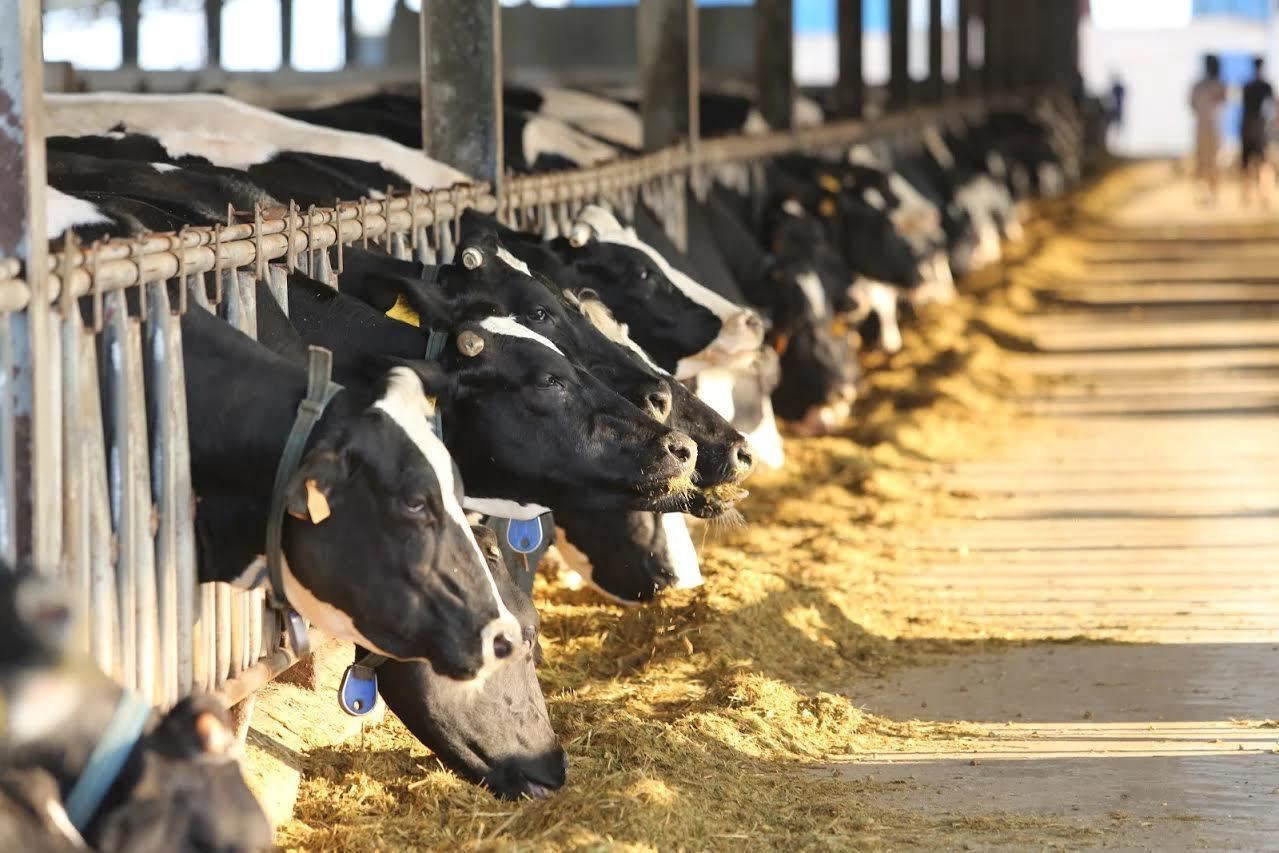
According to the Ministry of Agriculture and Rural Development (MARD) Vietnam has 28.8 million pigs, 8.9 million cows and 533 million . The value of the entire husbandry sector in 2022 was $23.7 billion.
Nguyen The Hinh, deputy head of the Agriculture Project Management Board, said that a circular economy will solve the problems of green growth and sustainable development of the husbandry sector.
Hinh said three major technologies are being applied at large livestock farms: solid waste treatment with separators; gas waste treatment with biogas generators; and liquid waste treatment with irrigation systems (after biogas waste water through filtration system).
Ten cities under the Low Carbon Agricultural Support Project (LCASP) have seen satisfactory results. The project has invested in manure separators in livestock farms with over 2,000 heads of pigs and cows as well as irrigation systems with biogas wastewater. Large farms have seen profit margins of over 20 percent, and a payback period of 5-6 years.
Manure separators and irrigation systems with biogas wastewater have been installed at farms with more than 2,000 pigs and cows. Large farms all have reported a profitability rate of over 20 percent. The time needed to take back the investment capital is 5-6 years.
At large farms with more than 5,000 animals, the profitability ratio is 60 percent higher than the traditional model and the time needed to take back the investment capital is 2-3 years.
Meanwhile, the Vietnam Academy of Agriculture has developed a fowl-vegetable farming model on a trial basis in Thai Binh.
Bui Thi Hong Ha said that chicken manure is treated with microbiological technology at the farm, and is composted and used in the vegetable field.
The method is used at the laying hen farm (18,000-50,000 hens), which increased the yield of Trung An Vegetable Cooperative by 40 percent.
It is estimated that the husbandry sector alone produces 75 million tons of by-products a year, which is a substantial source to develop a circular economy. However, most of it has been thrown away.
According to Nguyen Anh Phong from the Institute of Policy and Strategy for Agriculture and Rural Development (IPSARD), to develop a circular economy in agriculture, Vietnam has to solve some challenges, including poor awareness of circular economy at small and medium enterprises (SMEs) and cooperatives, the fear for risks, high investment rate for recycling models and unperfected legal framework.
Tam An